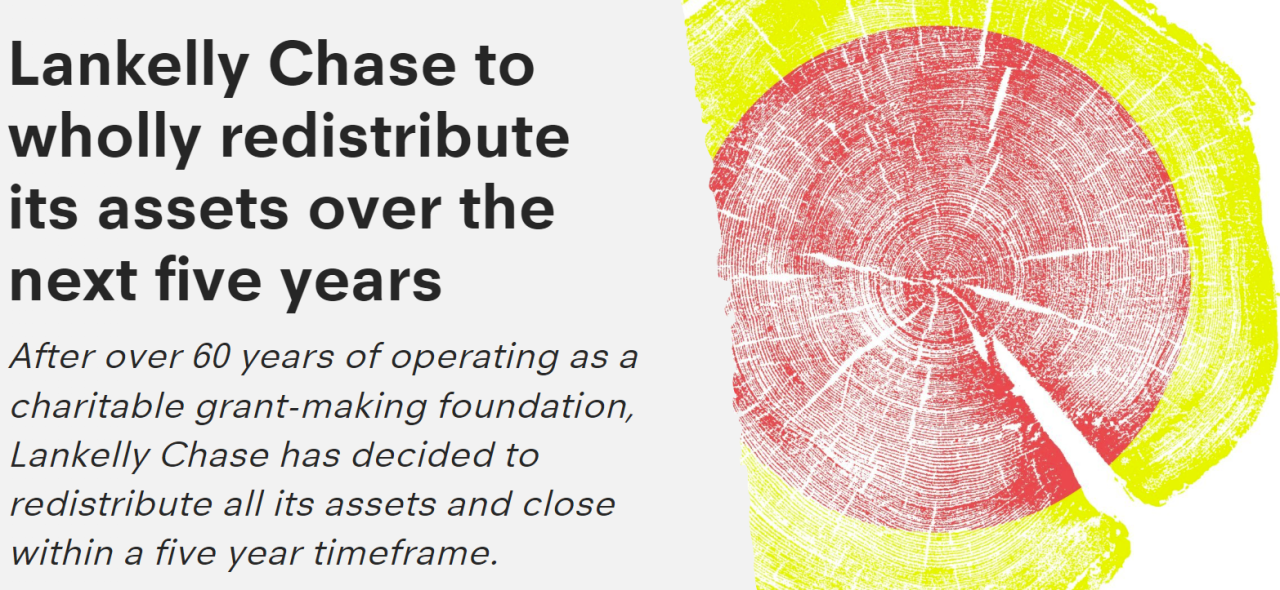Article on the Lankelly Chase Foundation closure announcement
Our director Richard Garside, wrote for Third Sector magazine earlier this week on the closure announcement by Lankelly Chase Foundation.
Over the coming five years, Lankelly Chase proposes redistribute its assets and close down, so that “money can flow freely to those doing life-affirming social justice work”.
Richard writes about the important funding role Lankelly Chase has played for many years and suggests that its trustees consider a possible rethink of their plans. His Third Sector article is a shorter version of a piece he wrote last week for our website.
You can read Richard's Third Sector article here (free, but registration required). It is also reproduced in full below.
“All money is dirty,” a former boss told me some three decades ago. “The question is, how much dirt are you comfortable with?”
In the case of the Lankelly Chase Foundation – one of the UK’s larger grant-giving bodies – the answer is “less dirt than you would have thought”.
Last week, it announced plans to close down over the next five years.
Its wealth and way of working, so tainted by “the harms and patterns of colonial capitalism”, had left its trustees with a “moral and legal duty to act”.
Closing itself down and redistributing its assets to others will ensure “that money can flow freely to those doing life-affirming social justice work”.
Perhaps.
My organisation, the Centre for Crime and Justice Studies, is not directly affected by the decision. We last received a grant from Lankelly Chase nearly two decades ago and we are an unlikely fit for any future funding or asset distribution.
I am, though, concerned about the impact of the decision on many small charities and activists groups, who rely on grants from foundations like Lankelly Chase to continue their important work.
While some of its assets will likely be distributed as grants by the future asset holders, Lankelly Chase also states that “the ‘funder’ role is only one possible model for how the money can be used and distributed in the future”.
A smaller, more fragmented asset base for charitable funding seems a likely result, whether Lankelly Chase intends this or not.
The decision to close down was made solely by the foundation’s six trustees, four of whom were only appointed in 2020.
Lankelly Chase states that, had they consulted more widely, “we would have been involving people in a decision that was already clear to the people who hold responsibility for that decision”.
This may be correct in strict governance terms. Yet Lankelly Chase is not just any old charitable trust.
It has been a key part of the third sector ecology for more than six decades.
I am not alone in feeling that the many charities who have relied on its support over the years, as well as others who will not now receive support in the future, deserve better than this.
Lankelly Chase holds more than £130m in assets. It has a mission “to challenge injustice and create the conditions for much healthier systems to emerge”.
These are admirable goals. It has the resources to make a difference. So why is it closing down?
Its wealth and institutional position, Lankelly Chase argues, is the product of “ongoing processes of colonial appropriation and exploitation”.
Having tried to resolve the contradiction, it concluded it could “no longer reconcile our position as an owner and active accumulator of private financial capital with a mission anchored in social, and particularly racial, justice and equity”.
Though admirably honest, it misunderstands the problem. There is no ‘outside’ to capitalism, short of a revolutionary transformation, no pristine space of thought and action free from capitalism’s effects.
Lankelly Chase can abolish itself. It cannot abolish the dirt on its money or the dynamics of capital accumulation that it finds so troubling.
The new custodians of its wealth will face exactly the same dilemmas the foundation’s trustees concluded they were unable to resolve.
Lankelly Chase says it is eager to have ambitious and open conversations about its plans.
I hope that this includes an openness to the possibility of a rethink.
